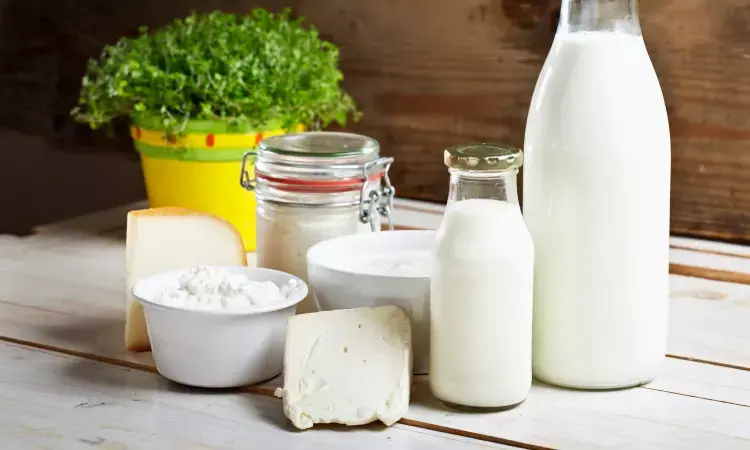- Home
- Medical news & Guidelines
- Anesthesiology
- Cardiology and CTVS
- Critical Care
- Dentistry
- Dermatology
- Diabetes and Endocrinology
- ENT
- Gastroenterology
- Medicine
- Nephrology
- Neurology
- Obstretics-Gynaecology
- Oncology
- Ophthalmology
- Orthopaedics
- Pediatrics-Neonatology
- Psychiatry
- Pulmonology
- Radiology
- Surgery
- Urology
- Laboratory Medicine
- Diet
- Nursing
- Paramedical
- Physiotherapy
- Health news
- Fact Check
- Bone Health Fact Check
- Brain Health Fact Check
- Cancer Related Fact Check
- Child Care Fact Check
- Dental and oral health fact check
- Diabetes and metabolic health fact check
- Diet and Nutrition Fact Check
- Eye and ENT Care Fact Check
- Fitness fact check
- Gut health fact check
- Heart health fact check
- Kidney health fact check
- Medical education fact check
- Men's health fact check
- Respiratory fact check
- Skin and hair care fact check
- Vaccine and Immunization fact check
- Women's health fact check
- AYUSH
- State News
- Andaman and Nicobar Islands
- Andhra Pradesh
- Arunachal Pradesh
- Assam
- Bihar
- Chandigarh
- Chattisgarh
- Dadra and Nagar Haveli
- Daman and Diu
- Delhi
- Goa
- Gujarat
- Haryana
- Himachal Pradesh
- Jammu & Kashmir
- Jharkhand
- Karnataka
- Kerala
- Ladakh
- Lakshadweep
- Madhya Pradesh
- Maharashtra
- Manipur
- Meghalaya
- Mizoram
- Nagaland
- Odisha
- Puducherry
- Punjab
- Rajasthan
- Sikkim
- Tamil Nadu
- Telangana
- Tripura
- Uttar Pradesh
- Uttrakhand
- West Bengal
- Medical Education
- Industry
Human milk products given to preterm infants don't modify gut microbiome: JAMA

United Kingdom: An original investigation in Paediatrics, published in JAMA Network Open, has concluded that there is no impact exerted by pasteurized human milk/ products on gut bacteria. The researchers said the human milk products given to preterm infants to supplement a shortfall in the mother's own milk do not affect clinical outcomes via microbial mechanisms. The researchers have justified the possibility that diet benefits the health but does not change gut microbiota.
There needs to be more data regarding using an exclusive human milk diet than the one using bovine products in preterm infants. There are some studies which have demonstrated lower rates of key neonatal morbidities. The gut microbiome is the potential mediating pathway.
The researchers have answered the question regarding the "EFFECTS OF HUMAN MILK DIET ON GUT MICROBIOTA AND CLINICAL OUTCOMES IN PRETERM INFANTS." They determined the effect of the human milk t on the richness of gut bacteria, diversity, and specific taxa proportion in preterm infants from enrollment to 34 weeks postmenstrual age.
The study points include the following points:
- The site of the trial was four neonatal intensive care units in the UK (2017-2020).
- Infants under 30 weeks gestation received their mother's milk and were recruited before 72 hours of age.
- The primary Outcomes and Measures include gut microbiome profile.
- The researchers enrolled 126 preterm infants and divided them into two groups: Control and intervention.
- Both the control and intervention group has 63 preterm infants each.
- In the control group, the median gestation was 27 weeks, with median birthweight of 910 g.
- In the intervention group, the median gestation was 27.1 weeks and the median birthweight of 930 g.
- The researchers analyzed 472 stool samples from 116 infants.
- There were no differences in bacterial richness reported.
- The exclusive human milk diet group had a reduced relative abundance of Lactobacillus.
Concluding further, in preterm infants using human milk–derived formula and fortifier to enable an exclusive human milk diet, there were no effects on gut bacterial diversity's overall measure, but there were effects on specific bacterial taxa previously associated with human milk receipt.
They said human milk–derived products' clinical impact is not modulated via microbiomic mechanisms.
Further reading:
Embleton ND, et al. Effect of an Exclusive Human Milk Diet on the Gut Microbiome in Preterm Infants: A Randomized Clinical Trial. JAMA Netw Open. 2023;6(3):e231165. doi:10.1001/jamanetworkopen.2023.1165
BDS, MDS in Periodontics and Implantology
Dr. Aditi Yadav is a BDS, MDS in Periodontics and Implantology. She has a clinical experience of 5 years as a laser dental surgeon. She also has a Diploma in clinical research and pharmacovigilance and is a Certified data scientist. She is currently working as a content developer in e-health services. Dr. Yadav has a keen interest in Medical Journalism and is actively involved in Medical Research writing.
Dr Kamal Kant Kohli-MBBS, DTCD- a chest specialist with more than 30 years of practice and a flair for writing clinical articles, Dr Kamal Kant Kohli joined Medical Dialogues as a Chief Editor of Medical News. Besides writing articles, as an editor, he proofreads and verifies all the medical content published on Medical Dialogues including those coming from journals, studies,medical conferences,guidelines etc. Email: drkohli@medicaldialogues.in. Contact no. 011-43720751


